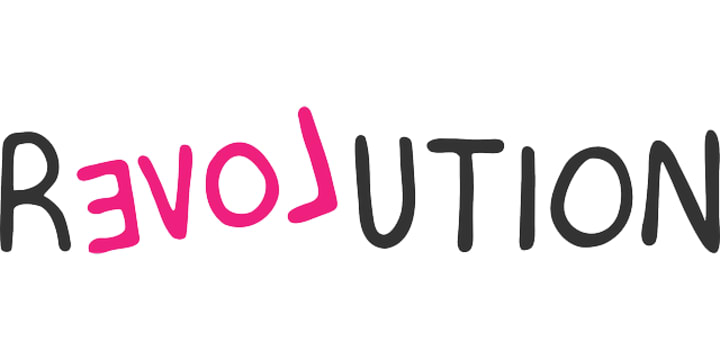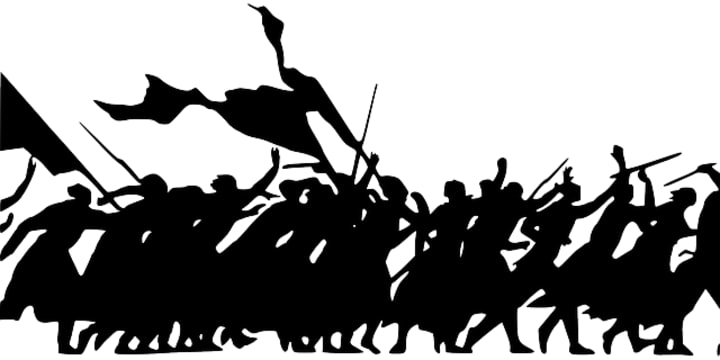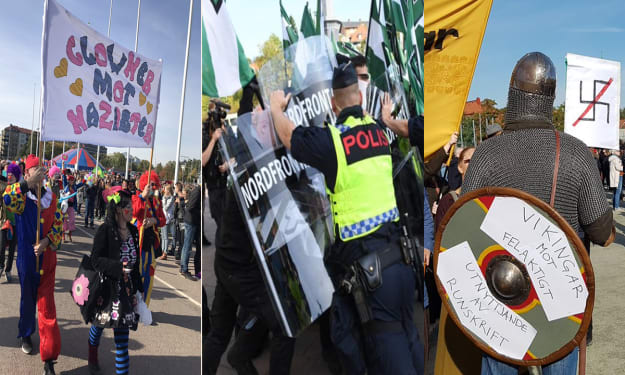A Handbook to Ending Injustice.
A summary of the The Manifesto of the Communist Party.

A specter is haunting the world. The specter of capitalism! Today five of the richest people in the world own more than half of the world's wealth. Five people own more than three billion people.This inequality is a part of the capitalist society, some have too little whilst others live in excess. The driving force of this inequality is the notion that freedom is material accumulation and individual competition. But, can this be changed? According to Karl Marx and Fredrick Engels, yes it can.
“Workers of all countries, Unite!” is the closing challenge set by Karl Marx and Fredrick Engels in The Manifesto of the Communist Party. A handbook in ending Capitalism’s excess for the few and replacing it with Communism’s provision for all. However, the Manifesto’s near one hundred and seventy-year history does show through. Much of its text is reflective of the time period, it references to events long forgotten and goes on metaphorical tangents in its descriptions. The sense of self-assured inevitability that is throughout the Manifesto is contrasted by the reader's knowledge that capitalism has quiet clearly not ended yet. So what does The Manifesto of the Communist Party have to offer? The following are some of the key points of the Manifesto relevant for understanding are modern society.
Material Men in a Material World

Materialism was everything for Marx and Engels. The haves and have nots, and those who produced the products bought in society were their areas of interest. In the modern capitalist society there are two main groups; the Bourgeois and the Proletariat.
The Bourgeois own property e.g. a factory, and make profit from it using the labour of the Proletariat who are the workers. The Proletariat make up a large proportion of the population and are oppressed. This oppression is based on the fact the Proletariat in order to survive must sell their work to the Bourgeois.
It is in the interest of the Bourgeois to pay as little as possible for the work so that they can make as much profit as they possibly can.
In other words, a company will pay the minimum wage to its employees so that they can make a profit. This means that the employees are dependent on the company to allow them to survive. No work means no food. No work means no place to live. In short not working means death for the oppressed class.
Marx and Engels even predicted that over time even those who were not dependent on working for the Bourgeois such as shopkeepers would fall into the Proletariat, their property no longer enough to provide a means of supporting themselves.
No Struggle but Class Struggle

The Manifesto of the Communist Party is a reaction to the dystopian world created by the industrial revolution and capitalism. The dirt, grime, and naked exploitation of the capitalist system were to Marx and Engels an inevitable stepping stone to something better. Society advanced, they said, through conflict between the oppressed and the oppressor.
In the modern capitalist society, the class struggle between the Proletariat and Bourgeois would result in a revolution. Within this, the Communists were to function as the revolutionary spark and glue to bind individual workers in the workplace to a greater national struggle and eventually revolutionary emancipation. Marx and Engels noted that without a greater connection to the bigger picture, any revolutionary actions taken by the oppressed workers would fizzle out.
In short, social change is created by groups of people rather than individuals by acting together change can occur.
Ice cold capitalism

The capitalist society is subject to the demands of the market, destabilising society and reducing all human interaction to a cold calculation of profit and cost. Supporters of the Bourgeois society supported this reduction of human interaction as defending individual freedom. To own property and to act with the aim of gaining more property, they argued, is part of human nature. Without the incitement to gain more property, the supporters of the Bourgeois society suggest that society would not advance and stay lazily where it was. The freedom with which the Bourgeois speak of is, on the flip side, the insecurity faced by the Proletariat every day.
This freedom represents an encroachment on the ability of the ordinary people to fulfill their needs and survive.
Alienation Becoming a Machine

An integral part of the capitalist way of production is specialisation and mass production. One worker does one task on a production line with other workers. This specialisation makes production quicker and more effective but leaves the worker doing one thing repeatedly. Marx and Engels argued that this went against human nature and left the worker feeling empty and without purpose.
Defined as alienation, this condition was caused by workers being unable to use their innate creativity to effect their work, becoming little more than a machine. Alienation can also be said to be a part of most waged labour, as the person to some degree or another is not freely doing the task they are being paid for.
Capitalism, your time will come.

Through their analysis, Marx and Engels suggested that change was both possible and an inevitability. The Bourgeois or Capitalist society, like the Feudal society before it, would be unravelled through conflict.
The birth of the Capitalist society, they suggested, was brought about by the mechanisation of production and the improvement of communication links. These improvements allowed for an increase in production and the means to export the produced goods. Over time the Bourgeois were able to increase their political power. This increase in influence meant an expansion of market to sell goods by force i.e. imperialism, relaxing of laws, and protection of private property. This allowed for increase profit making, but also overproduction of goods. Overproduction and market forces would create economic instability, and thus result in capitalism end.
Overproduction creates a situation where goods cannot be sold at the current price. In order to sell their goods the capitalist needs to reduce their costs to adjust to the current market value.
As the worker’s wages are the most expensive part of production their wages are reduced or redundancies are made. This means that workers must reduce their spending, which means a reduction in consumption of goods. The knock on effect is that the goods that are produced are not bought and so continues the cycle. Crisis is part of the capitalist society and eventually will result in its downfall.
In the End, Revolution.

Marx and Engels saw only one end to the exploitation and instability of capitalism. Revolution. Through the progressive influences of the communists, the Bourgeois would be overthrown.
The capitalists would have their factories and machines taken forcefully by the workers. Production would instead be there to serve human need instead of profit to the few, and a state of communism would exist.
And today?

Capitalism may seem like an unchangeable fact of reality, but as Marx and Engels suggested society is changeable. What seemed like a natural law then is now not. It cannot be refuted that the ideas of free trade and capitalism have affected the way in which people live. As the Manifesto points out, everything has a price and can be potentially bought, creating a power balance between those who live in abundance and those scrape for their existence. In short, the choice to work or die is no choice.In today’s world where capitalism dominates, it is easy to say that it is just the way it is. The Manifesto of the Communist Party, however, says otherwise.
“The proletarians have nothing to lose but their chains. They have a world to win. Workers of All Countries, Unite!”
About the Creator
Phillip Woodford
I write therefore I am, or something like that. My areas of interest are social justice, and philosophy.






Comments
There are no comments for this story
Be the first to respond and start the conversation.